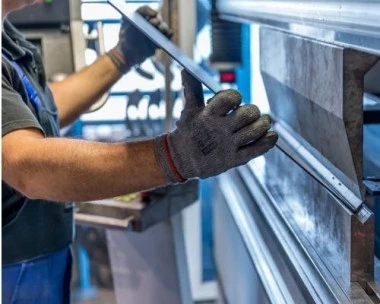Manufacturing’s Reputation Improving, Hiring Still Hard
Add bookmark
The good news is that more people believe that manufacturing jobs are innovative and would encourage their children to pursue a career in the industry. The bad news is that, despite this, nearly half of manufacturers are still having to turn away work because they don’t have enough people to get the job done.
That’s according to a new survey co-authored by Deloitte and The Manufacturing Institute.
The survey, The 2022 Manufacturing Perception Study, found that 64% of respondents believe that manufacturing jobs are innovative, up from 39% in 2017. Similarly, 40% of respondents say that would encourage their children or other youth to pursue a career in manufacturing, up from 27% in 2017.
The COVID-19 pandemic, say the report authors, may have contributed to a healthier outlook on manufacturing jobs. The crisis highlighted the critical role of US manufacturing in producing medical equipment and PPE and keeping supply chains moving. Nearly three quarters (73%) of respondents said that manufacturing was critical to the COVID-19 response.
However, manufacturers still struggle to recruit and retain staff. At the start of last year, for instance, 83% of manufacturers said that attracting and retaining quality workers was their top challenge and nearly half have had to forgo business opportunities because of the labor shortage (see NAM Manufacturers' Outlook Survey).
An aging workforce and changing habits of young people are part of the reason for these shortages. In our recent Connected Worker online event, for instance, forestry products manufacturer Georgia-Pacific revealed that almost half of the company’s workforce is going to be over 65 years old in the coming years and will soon be retiring.
That gives further urgency to the need to attract young people into the profession. The study authors believe that more needs to be done to communicate about the increasingly high-tech nature of manufacturing. Just over half (55%) of respondents believe that manufacturers offer “opportunities to learn and enhance digital skills” and only 32% believe that manufacturing jobs are “clean and safe.”
The authors suggest that manufacturers must work to explain how new technologies such as artificial intelligence and robots free up employees to do more interesting work and make jobs safer.
Finally, taking a positive stance on sustainability and climate change can increasingly play a role in attracting young talent to the industry.
“Younger workers generally want to know that they are contributing positively to something bigger than themselves and that they are making a difference,” say the report authors, adding that Gen Z and millennials increasingly care about “climate change and the environmental impact of manufacturing.”
Interested in Learning More?
As COVID-19 restrictions ease and the manufacturing industry rebounds, industrial employers face an urgent imperative to prepare for the future of work. Learning how to navigate transformation, closing the digital skills gap, accounting for supply chain disruption, and constantly pushing innovation, productivity and quality must be among the top priorities for organisations looking to thrive.
Join over 300 industry leaders on 27-29 June 2022 in London and learn how to build a connected workforce to improve resilience, agility and growth in a recovering economy. Find out more about the event here.

















